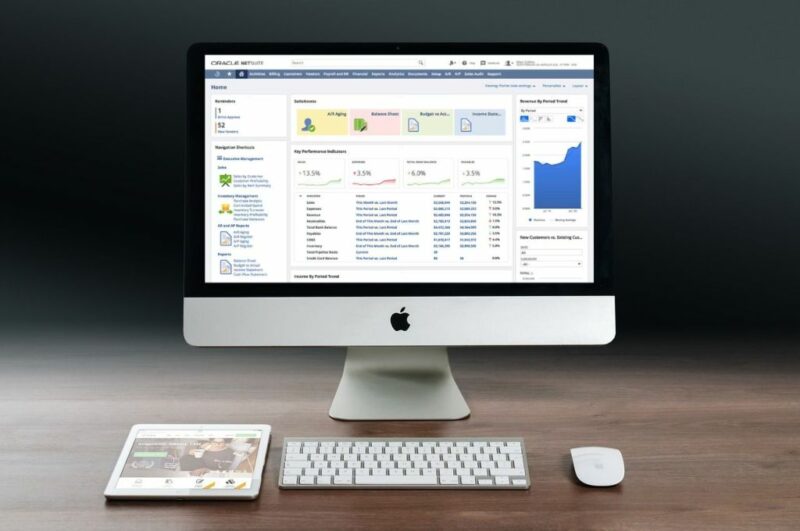Financial management is the backbone of any business operation. As the complexity of business transactions increases, organizations turn to software solutions that can adeptly handle these multifaceted operations. Oracle NetSuite, a leading provider of cloud-based financials/ERP software suites, stands tall in this domain. This article will dive into the world of lease accounting and explore how NetSuite caters to this aspect of financial management, providing a balanced view of its strengths and challenges.
Lease Accounting: A Brief Primer

Before we delve into NetSuite’s capabilities, it is important to understand what lease accounting entails. In simple terms, lease accounting is the process of reporting and analyzing the financial aspects of leases. It involves determining lease classification, calculating lease liability, recognizing lease expenses, and maintaining detailed records of these transactions.
Lease accounting standards have undergone significant changes in recent years, with the introduction of new accounting standards like IFRS 16 and ASC 842. These new standards require lessees to recognize almost all leases on their balance sheets as both assets and liabilities. This helps to increase transparency around a company’s financial obligations. Consequently, businesses need robust software solutions to effectively manage their lease portfolios and ensure compliance with these standards.
The NetSuite Overview: What It Does
NetSuite is a comprehensive business management software suite that provides solutions for ERP, financial management, CRM, e-commerce, and more. It’s a cloud-based, fully-integrated platform designed to provide real-time access to key business metrics. It helps organizations streamline their operations and make data-driven decisions.
The beauty of NetSuite lies in its ability to provide a single, unified platform for managing multiple aspects of a business. From accounting and financial management to supply chain and inventory control, NetSuite covers a wide array of business processes. Its cloud-based architecture allows for anytime, anywhere access, and its flexible, scalable design makes it suitable for businesses of all sizes.
NetSuite and Lease Accounting: An Integrated Approach
NetSuite provides robust functionality for lease accounting as part of its financial management solutions. The platform is equipped to handle the complexities of the new lease accounting standards, allowing businesses to manage their lease portfolios effectively and ensure regulatory compliance.
NetSuite’s lease accounting module helps in tracking and managing lease data, classifying leases based on the new accounting standards, calculating lease liability and expenses, and generating accurate financial statements. It also provides comprehensive lease reporting capabilities, giving businesses insights into their lease portfolios and financial obligations.
Through its integrated approach, NetSuite lease accounting allows for seamless interplay between lease accounting and other financial operations. For example, lease expenses can be automatically reflected in the profit and loss statement. Lease liabilities can be factored into the balance sheet, ensuring that all financial reporting is up-to-date and accurate.
Harnessing the Power of NetSuite: Key Features for Lease Accounting
To further highlight NetSuite’s capabilities for lease accounting, let’s delve into some key features that set it apart:
- Integrated Lease Management: NetSuite allows businesses to manage their entire lease portfolio within a single platform, streamlining operations and increasing efficiency.
- Compliance with Lease Accounting Standards: With functionality tailored to meet the requirements of the new lease accounting standards, NetSuite helps businesses ensure compliance with IFRS 16 and ASC 842.
- Robust Calculation Capabilities: NetSuite is equipped to handle complex calculations related to lease classification, lease liability, and lease expenses, ensuring accuracy in financial reporting.
- Comprehensive Reporting: NetSuite provides detailed reports on lease data, giving businesses insights into their lease obligations and financial commitments.
- Seamless Integration with Financial Operations: Lease data in NetSuite is automatically reflected in other financial operations, such as profit and loss statements and balance sheets, maintaining consistency across all financial reporting.
- Cloud-Based Accessibility: Being a cloud-based platform, NetSuite provides anytime, anywhere access to lease data, giving businesses the flexibility to manage their lease portfolios on the go.
These features make NetSuite a comprehensive, integrated solution for lease accounting, capable of meeting the needs of businesses in today’s complex financial landscape.
A Balanced View: Strengths and Challenges
Like any software solution, NetSuite has its strengths and challenges when it comes to lease accounting. On the positive side, its comprehensive, integrated approach allows for efficient lease management and accurate financial reporting. Its robust functionality ensures compliance with the new lease accounting standards. Also, its cloud-based architecture provides the flexibility and accessibility that modern businesses need.
Furthermore, NetSuite’s lease accounting module is designed to be user-friendly, with intuitive interfaces and workflows. This reduces the learning curve and allows users to effectively manage their lease portfolios without requiring specialized knowledge.
However, NetSuite does have its challenges. While its broad functionality is a strength, it can also make the platform somewhat complex to navigate, especially for new users. Additionally, like any software, NetSuite requires periodic updates to stay current with changing accounting standards and regulations, which can sometimes lead to temporary disruptions.
Navigating the Landscape of Lease Accounting with NetSuite
As businesses navigate the complex landscape of lease accounting, tools like NetSuite serve as valuable allies. By providing comprehensive, integrated solutions for lease accounting, NetSuite helps businesses manage their financial obligations effectively and ensure compliance with regulatory standards.
While it has its challenges, NetSuite’s strengths in terms of functionality, flexibility, and user-friendliness make it a strong contender in the realm of financial management software. By understanding its capabilities and potential pitfalls, businesses can leverage NetSuite to navigate the world of lease accounting, ensuring sound financial management and contributing to their overall success.
Please share these tips for leveraging NetSuite to navigate the world of lease accounting with your friends and family.



